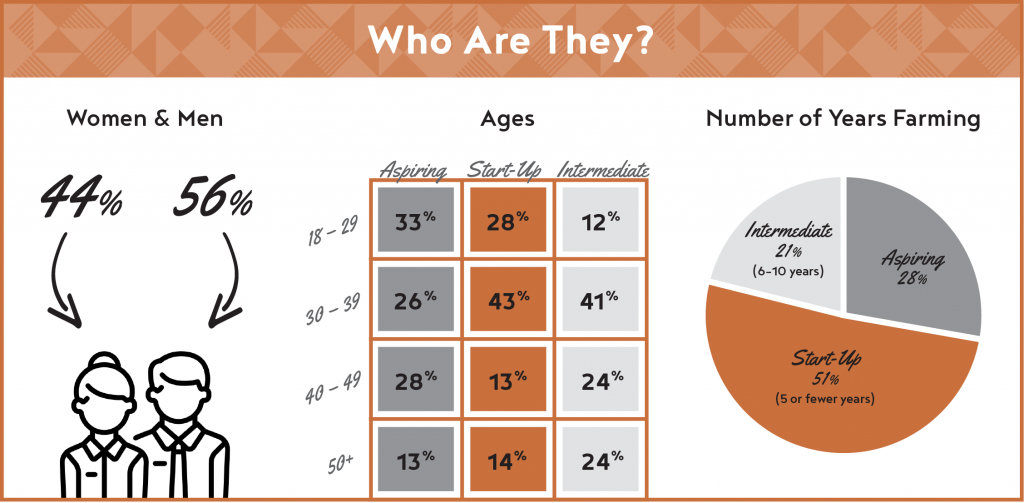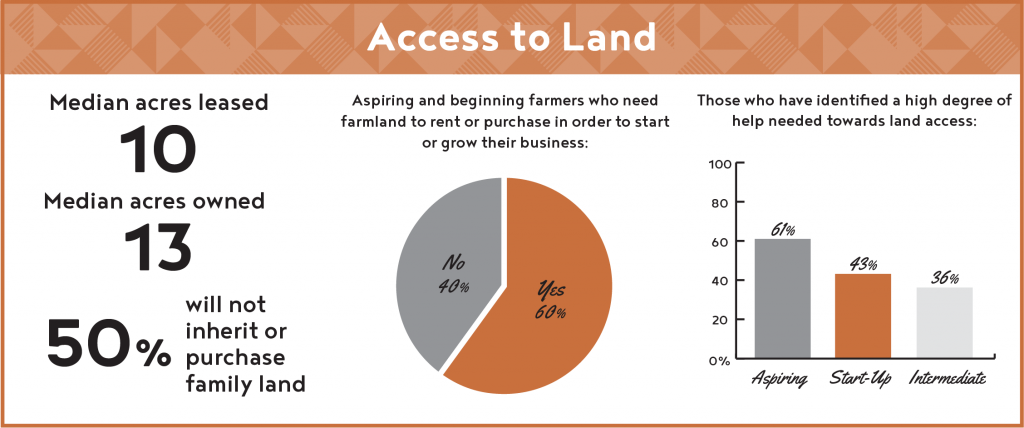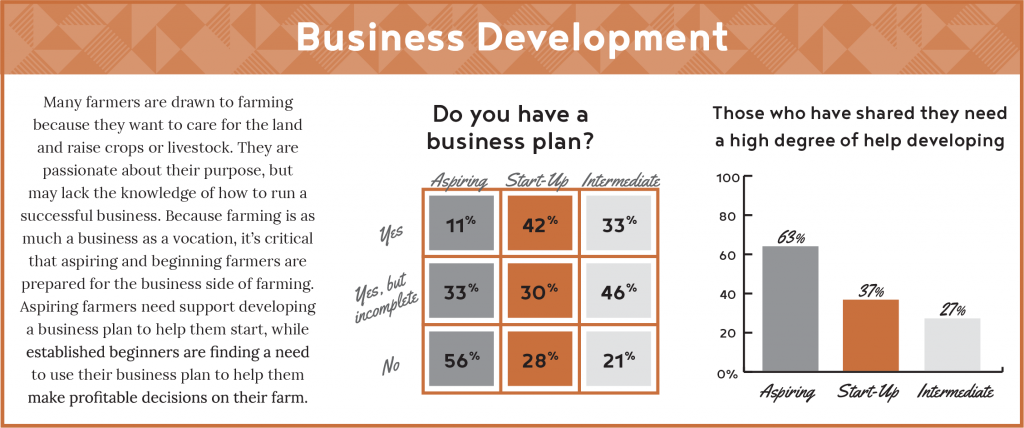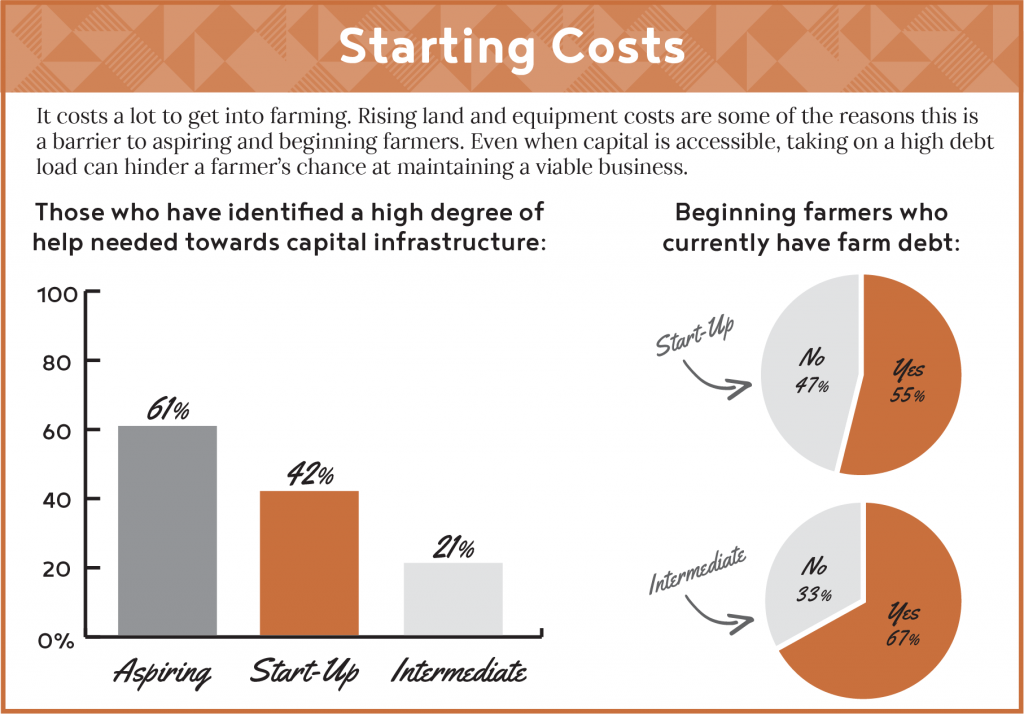Identifying and Supporting Beginning Farmers
Beginning farmers have been coming to Practical Farmers to get help starting their farming journey for over 10 years. In 2009, the rapid influx of beginners looking for support spurred the creation of programming to support their needs. The very next year, the first Savings Incentive Program class was enrolled. Since then, supporting beginning farmers has ranked as one of the top priorities for PFI members.
An essential part of maintaining Practical Farmers’ farmer-led focus and providing effective programming involves listening to our network. PFI staff do this regularly by interacting with attendees at our events, paying attention to our email discussion lists and consistently asking for feedback about our activities. We also ask our member and beginning farmer networks to complete more in-depth surveys every few years.
The information we collect not only guides our work, it provides details we need for grant proposals and reporting to help fund this work. The following statistics were taken from our 2019 beginning and aspiring farmer survey, completed by 201 individuals.
What Obstacles Do They Face?
We have identified that beginners fall into three stages of farming. Aspiring farmers are those who are seeking to farm. Start-up farmers have just began their farming career; typically, they are in their first 1-5 years. Intermediate farmers have been farming 6-10 years. Farmers from all three of these categories face a range of obstacles as they get started. Overall, these groups cite access to land, business development and starting costs as their top three obstacles.
Ways We Help
At Practical Farmers of Iowa, we are growing our network of beginning farmers and are dedicated to helping them build successful agricultural businesses. While our focus on beginning farmers is not new, how we provide programming has evolved over the years.
We continue to build on what we learn from our farmers and offer a variety of ways for them to receive the support and technical assistance they need to create successful business enterprises. By listening and continually modifying our programming, we remain a relevant resource for our existing beginning farmer network while providing opportunities to train new beginning farmers.




